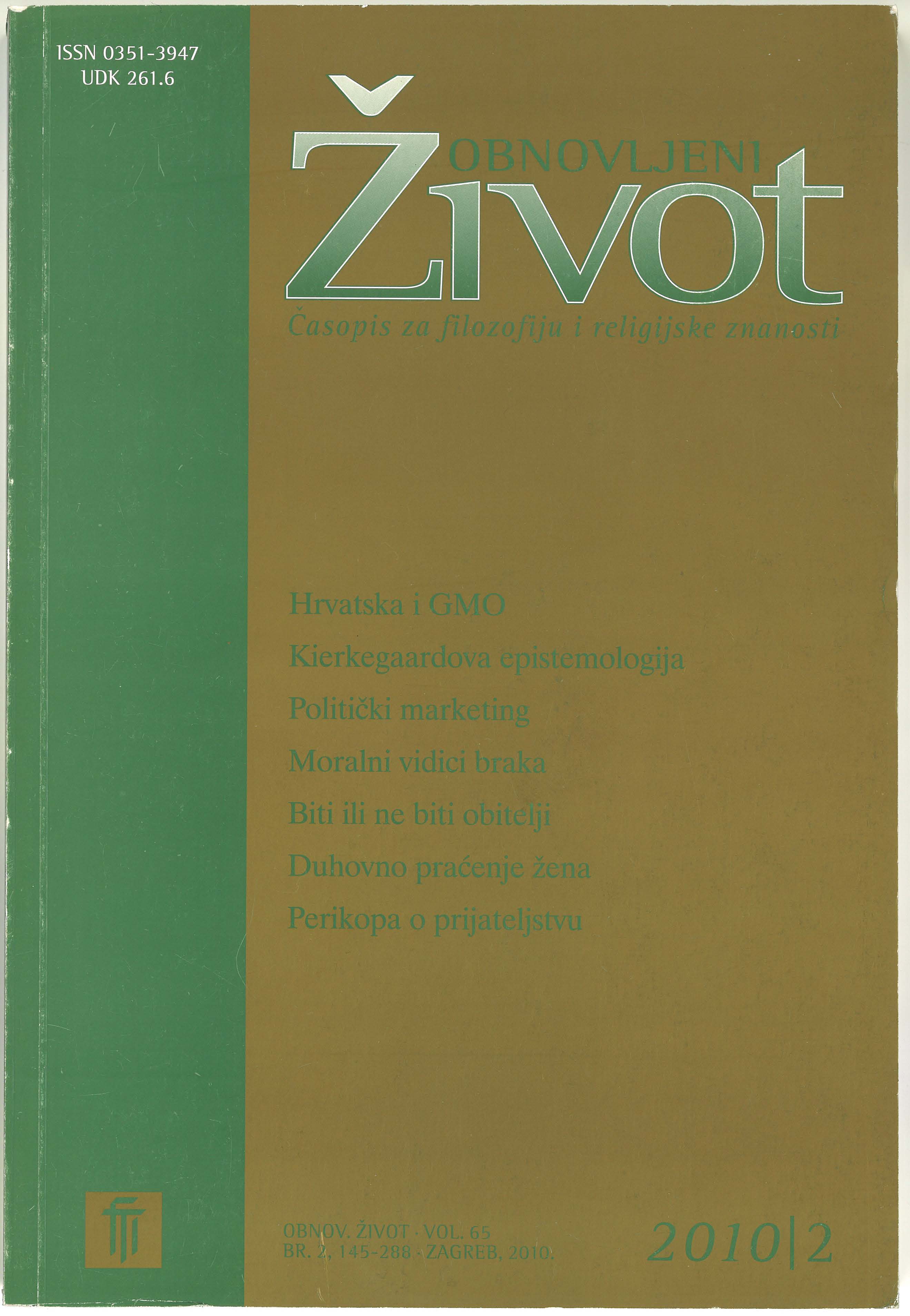Kierkegaard's Epistemology of Religion
The Relation between Faith and Reason
Keywords:
faith, reason, epistemology of religion, religious belief, rationality, KierkegaardAbstract
The aim of this paper is to probe the relationship between faith and reason in the works of the Danish philosopher, Kierkegaard, by applying the criteria of analytic philosophy. The paper is based mainly, if not exclusively, upon Kierkegaard's Philosphical Fragments, one of his most systematically written works. In light of the aforementioned criteria, we examine the manner in which an individual becomes a believer (i.e. how he comes to experience faith) in that we determine the reasons which were the basis for his decision to opt for faith. We are dealing here with faith which, according to Kierkegaard, is manifested primarily through the passion of existence and is marked by an aspiration to the ultimate self-realization. However, in order that faith be attained to the full, man must decide freely for God. In this respect faith presupposes/requires willing consent. We shall look into Kierkegaard's views on whether and why it is rational to believe in God. In this context we examine the question of Kierkegaard's being a proponent of irrationalism and fideism, as is commonly thought, and we come to the conclusion that he oscillates between the stances that faith is not in opposition to reason, but that it only surpasses reason, and that faith and reason mutually exclude each other. Irrationalism is a philosophical outlook which puts forward the thesis that reason cannot grasp reality to the full (and that reality as such is not grounded in reason). Kierkegaard indeed advanced and defended this thesis. Fideism is a theory which claims that metaphysical and religious truths can only be attained when grounded in faith (and faith is often in total opposition to reason). The fact that Kierkegaard understands faith in terms of passion suggests that, in his view, faith is an irrational attitude. Finally we shall compare Kierkegaard's epistemology of religion with the «reformed epistemology» of Alvin Plantinga so as to demonstrate the contemporariness of Kierkegaard's approach to the above topic.
Downloads
Published
Issue
Section
License
Jednom prihvaćeni članak obvezuje autora da ga ne smije objaviti drugdje bez dozvole uredništva, a i tada samo uz bilješku da je objavljen prvi put u Obnovljenom životu. Uredništvo će obavijestiti autora o prihvaćanju ili neprihvaćanju članka za objavljivanje.
Članci objavljeni u časopisu se, uz prikladno navođenje izvora, smiju besplatno koristiti u obrazovne i druge nekomercijalne svrhe.


